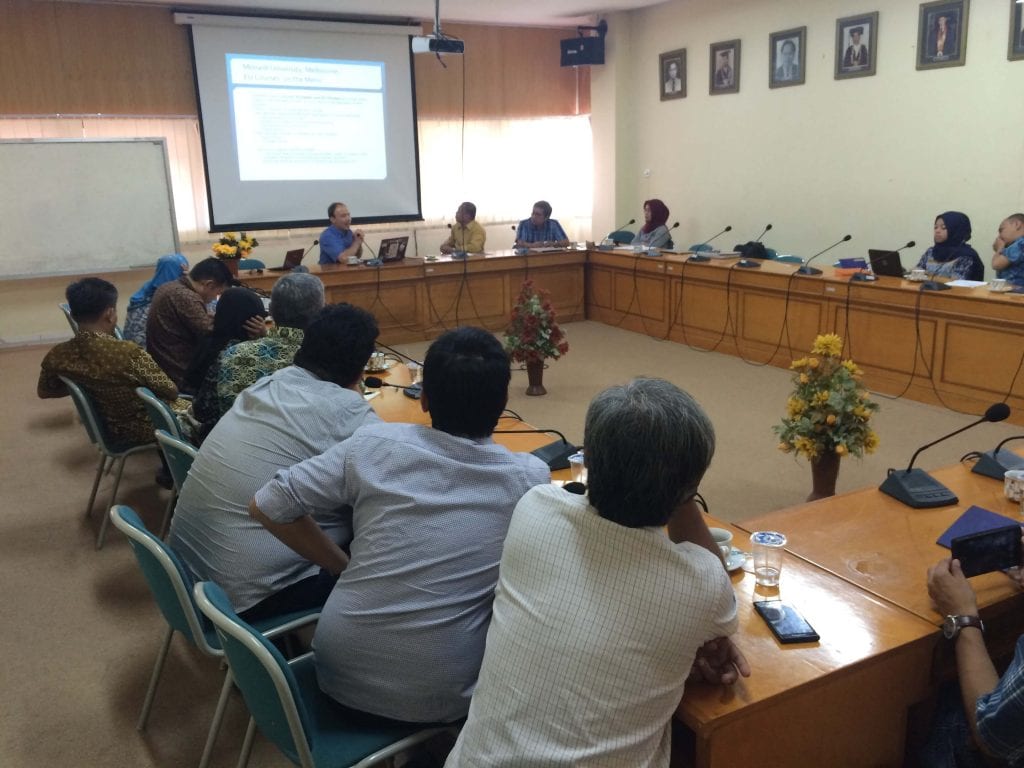Workshop on Euros Curriculum Makassar
On August, 24 2015, The Programme on European Studies – Institute of International Studies, Universitas Gadjah Mada (Euros-IIS UGM), in collaboration with the Dept. of International Relations Universitas Hasanuddin Makassar, organised a Workshop on European Studies Curriculum. The event that held in Universitas Hasanudin Makassar mainly talk about the dynamic of European studies in Indonesia and how to improve European-related studies further.
The workshop invited all Departments of International Relations within Indonesian universities to discuss academic and teaching activities in relation with European-themed courses in their institutions. The workshop itself had several aims:
(1) to enhance and promote European studies in Indonesia, especially to our colleagues based in eastern parts of Indonesia,
(2) to assist Indonesian International Relations (IR) scholars, particularly those who were coming from newly-founded IR departments, in establishing or refining European-themed courses, and
(3) to deliver ‘first-hand knowledge’ in terms of European-themed courses’ tought in Europe, by inviting European scholars to share their experiences.
The first session of this workshop was opened by Muhadi Sugiono. He said that, there was a growing interest form IR scholars there was a growing interest from IR scholars to develop European studies in Indonesia. But, there are main challenges for IR scholars who are interested in European issues. As a field of study, European-themed courses are not so popular among IR students, compared (for example) with ASEAN studies or East-Asian studies. Even in terms of topical studies (i.e.: security, economy), less students pick European-related study cases. There exists a paradigm/mind-set among Indonesian students that Europe is ‘far-away’. It is not only literally far geographically, but it also means that ‘what happens in Europe’ rarely impact our lives (on national or individual level) directly. Overall, this session was focus on how study about Europe grows and how to promote European-themed course in Indonesia.
Daniel Novotny, as second speaker, then opened the second session to discuss about European studies in Europe. According to Novotny, there were two general problems of promoting European studies outside Europe. The first problem is that the studies think that being expert in Europe or EU issues is not so useful for their future careers. And the second problem is that most Indonesians generally categories IR studies in regional studies or at least put emphasis on geographical proximity.
But he also said that, there are opportunities to enhance the promotion of European studies to students in Indonesia. He suggest to use EU integration approaches as a starting point because it would open the opportunities for students to explore comparative studies between the European Union end the current ASEAN integration. This kind of approaches also could be support by using more practical approaches to study the EU, for example, having a course that is focusing on EU business/trade law (so they can help local businesses to setup trade with the EU), or EU migration and cultural diversity issues, and so forth.
In the last session, Suci Lestari Yuana covered extra-curricular activities. Yuana presented Euros-IIS UGM’s programmes and activities in 2015, both those which were already organised and those which are still in progress. Yuana then put emphasis on several activities, particularly those under the EU-PDO budget, which could be co-organized in collaboration with other universities.

